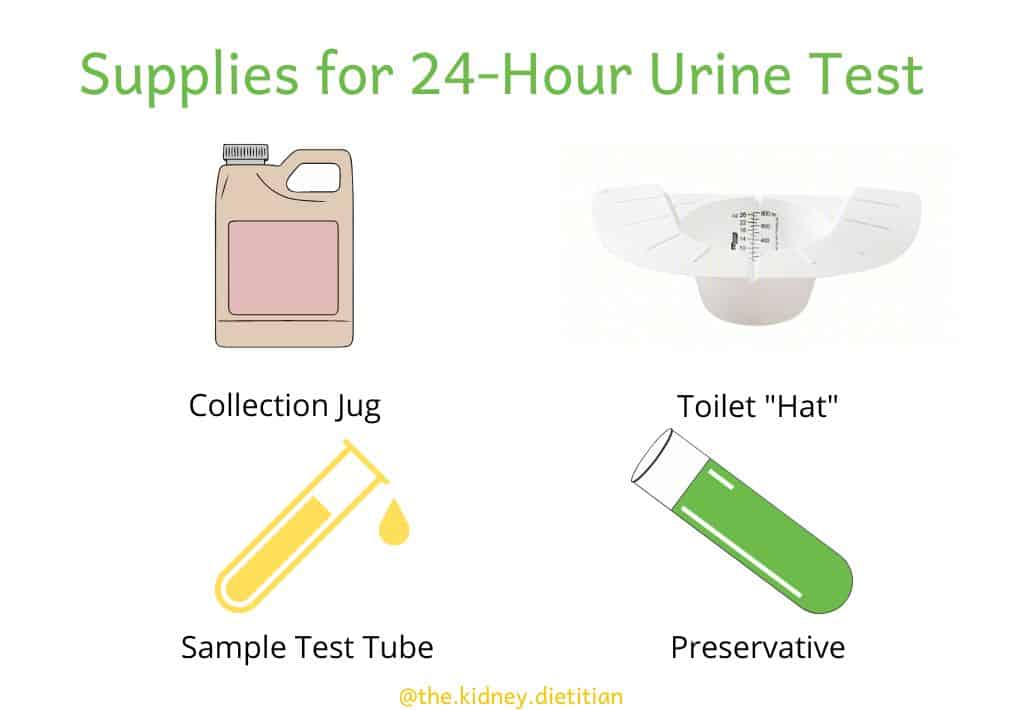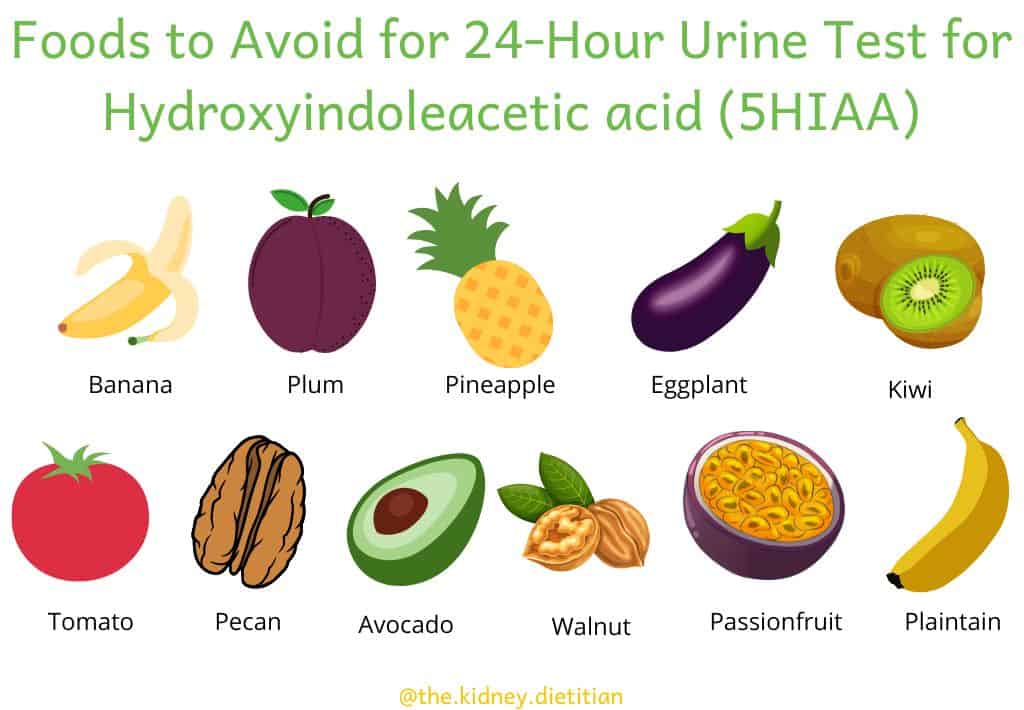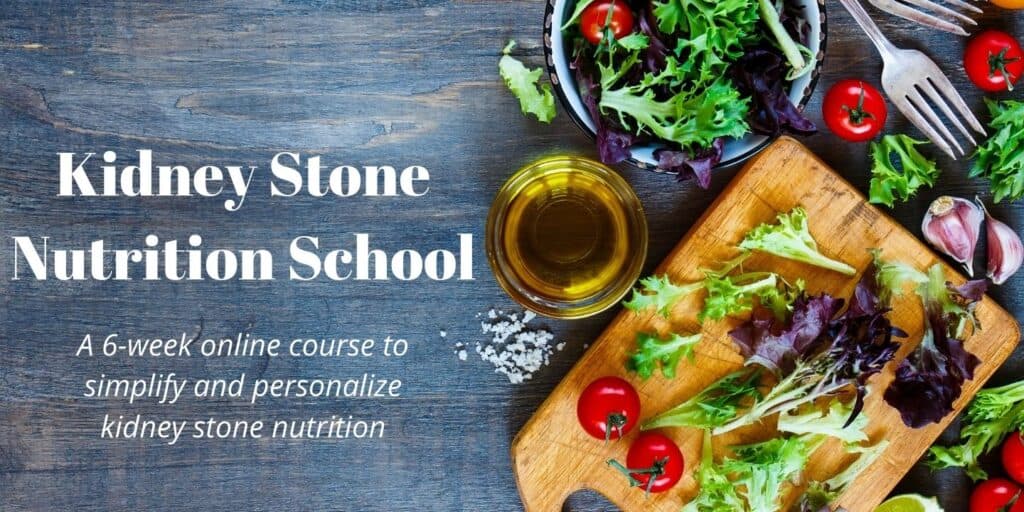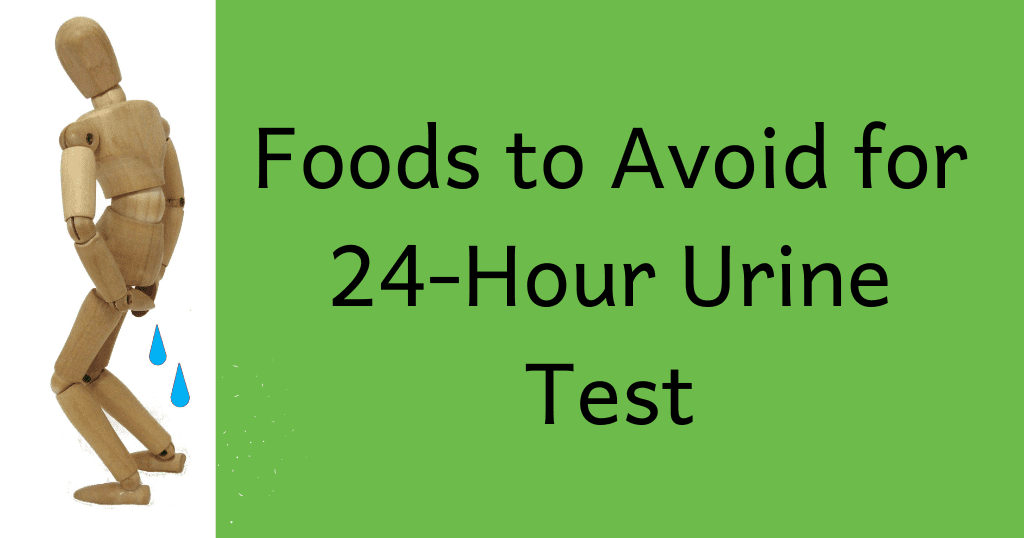Table of Contents
What is a 24-Hour Urine Test?
A 24-hour urine test measures what is in your urine, and how much urine you make, over a 24-hour time period.
A 24-hour urine test helps your medical team understand how well your kidneys are working and the mineral balance in your body. It is ordered for lots of different reasons. Some of the more common reasons are:
- Kidney stones
- Chronic kidney disease (CKD)
- Other kidney diseases such as glomerulonephritis, polycystic kidney disease (PKD) or nephrotic syndrome
- Bone health
- Structural abnormality to your kidney, such as a cyst
- High blood pressure
- Preeclampsia
- Low or high urine output
What Will a 24-Hour Urine Test Measure?
Depending on why your doctor ordered the 24-hour urine test, there are many different things that will be measured. Some of the most common things measured on a 24-hour urine test include:
- Calcium
- Protein
- Creatinine
- Urine pH
- Urea nitrogen
- Oxalate (for kidney stones)
- Citrate (for kidney stones)
- Uric acid
How To Do a 24-Hour Urine Test
A 24-hour urine test is simple, painless and straightforward. It is just like it sounds, a collection of all of your urine over 24 hours.
Of course, the reality of collecting your pee for an entire day is not so simple.
When a 24-hour urine test is ordered, you will usually be given a jug to keep your urine in and a “hat” that goes over the toilet to catch urine (especially for women). You’ll be given specific instructions for when to start and stop collecting urine. Often, the collection starts after the first void of the day through the first void the next morning. Each lab is different. Be sure to read your instructions carefully.
You may also get a preservative powder to add to your urine collection jug. This helps keep the components of urine that will be measured stable for accurate results.
Many labs ask your urine be kept cold. If this is the case, it should be kept in the refrigerator.
To return your collection, you might have to bring the entire urine collection to the lab. Or, you may just have to record the total urine volume and send in a small sample from the collection.

Foods to Avoid for 24-Hour Urine Tests
The foods to avoid for 24-hour urine test depends on what exactly is being measured by the test.
For most 24-hour urine tests, there are no foods you need to avoid.
If you are getting a 24-hour urine test for kidney stones, to assess kidney function or bone health, there are no foods to avoid.
Foods & Drinks You Don’t Normally Consume
A 24-hour urine test is done to understand what is in your urine and how much urine you make most of the time. It is tempting to eat and drink “perfectly” on the day of your 24-hour urine test. But, this doesn’t help your medical team help you!
A 24-hour urine test is most accurate if you eat and drink as normally as you can the days leading up to and the day of your 24-hour urine test.
Supplements & Medications to Avoid for 24-Hour Urine Test
Depending on your medical condition, your doctor might ask you to stop taking certain medications or supplements before your test. This is very individual to each person and test.
Common supplements you need to avoid are general multivitamins, calcium and vitamin C. Ask your doctor if you should stop taking medications or supplements before your 24-hour urine test.
Foods to Avoid for Rare 24-Hour Urine Tests
If your 24-hour urine test is being done to measure hydroxyindoleacetic acid (5HIAA) or catecholamines, there are some foods you should avoid. These specific tests are usually done to evaluate a possible tumor.
Hydroxyindoleacetic acid (5HIAA)
If the 24-hour urine test will measure hydroxyindoleacetic acid (5HIAA), it is best to avoid these foods for the 3 days before your 24-hour urine test. Be careful to avoid these foods and any food that contains pieces of these foods such as juice, yogurt, cheese or sauces.
- Bananas
- Plums
- Pineapples
- Eggplant
- Tomatoes
- Avocados
- Walnut
- Kiwi
- Pecans
- Passionfruit
- Plantains
Coffee, tea, alcohol and nicotine should also be avoided before this test.

Catecholamines
If the 24-hour urine test will measure catecholamines, it is best to avoid alcohol and caffeine 3 days before the test.
It is also recommended to avoid nicotine and strenuous exercise the day before the test.
Tips for a Successful 24-Hour Urine Test
A 24-hour urine test is painless, but can be annoying! Collecting all of your urine for 24-hours is no easy task. Here are some tips for a successful 24-hour urine test so you don’t have to repeat it!
- Make sure to collect ALL of your urine. Missing just one trip to the bathroom can make the urine test less accurate.
- Don’t collect too much urine! Your lab will give you specific instructions for when to start and stop collecting urine. Pay close attention!
- If necessary, keep your urine cold! Many 24-hour urine tests require that your urine be kept in the refrigerator. Check your instructions carefully to see if you need to keep your urine chilled.
- Don’t forget the preservative. Many 24-hour urine tests will include a small vial of powder the helps get an accurate result. Don’t forget to add it!
- Be normal! Easier said than done. Eating or drinking differently can impact your 24-hour urine test results. High stress or extreme exercise you don’t normally do can also change the results.
After a 24-Hour Urine Test
Depending on the lab, the results of your 24-hour urine test should be available within 3 days to a week.
Your doctor should contact you and go over the results. They might recommend you start, stop or change a medication. Or, they could recommend further testing.
Make sure to ask any questions you have about the 24-hour urine test results and changes to your treatment plan!
Kidney Stones & 24-Hour Urine Tests
Kidney stones are a very common reason for a 24-hour urine test. The American Urological Association recommends that anyone with more than one kidney stone, or people interested in kidney stone prevention get a 24-hour urine test.
The results will give you a ton of information about why your body made kidney stones. A stone analysis is important, but isn’t enough to come up with an effective kidney stone prevention plan.
Nutrition is a big part of preventing more kidney stones! A Registered Dietitian is the best person to help you understand what changes you can make to prevent kidney stones.
I help people prevent kidney stones with a personalized approach, based on your 24-hour urine test in Kidney Stone Nutrition School.

Happy Eating!
Melanie


I’ve never done a 24 hour urine test before. My doctor recommended that I take the 24 hour urine test. I realized that I added the preservative after the collection and not before. Is my sample invalid, should I send it in?
Did I mention that I’m also getting married in like 3 weeks? Needless to say it’s been hard to focus on this task since I probably have some acute stress as well.
Any feedback with this is appreciated and helpful.
Oh my goodness! You do have a lot on your plate. I’d actually recommend calling your doctors office or the lab to see what they say about the preservative – it really depends on the lab – they don’t all have the same type of preservative and guidelines.
Hi there,
I’m planning on doing a catecholamines test this weekend and just realized that I ate a very small amount of licorice ~17g on my first day of preparing. I was hoping to begin the test Saturday morning but the form I received specifies to avoid licorice for 3 days prior to the collection.
My question is, if I had a few licorice “Nibs” roughly 2.5 days prior to the collection would it be best to wait an extra day or would it not make too much of a difference? The reason I am taking the test is to attempt to narrow down what is causing my excessive sweating.
Thank you so much for your time and help!
Hi Colin! This is a much better question for the person who ordered this test. Only they know exactly what they are looking for in the results and if that would impact them!
Hi Mel, 72 yo, female, with long history of Ulcerative Colitis. Had one CaOx stone several years ago, nothing abnormal in the followup labs at the time. Recently had recurrence-(2) 80/20% uric acid/CaOx stones, labs unremarkable, (anion gap 10)- except urine ph 5.0. Awaiting metabolic work up & 24hr urine, but unlikely that I can be seen until next month. For the interim, would a PRAL (acid reduction load)-diet be safest? Thanks Mae, RN
Hello! Good to meet you. A lower PRAL diet is part of it – honestly, I’d check out this post to make sure you are touching on ALL the high points of what could be the issue for calcium oxalate stones.
Hey Melanie,
I’ve had multiple Calcium Oxalate stones over the last 4 years. I started restricting dietary Oxalate about 2 years ago, but I’ve still had several small stones. I previously regularly enjoyed spinach, almonds, almond milk, peanuts, etc., but now I don’t eat them at all. I’m getting a LithoLink 24° urine this week, but I’m intrigued by your comments about patients with low urine oxalate not necessarily having to restrict dietary oxalate. If I’m already restricting and my urine oxalate comes back low, I’m assuming the only way to tell if I can tolerate more be to add some back and re-check the 24° urine? I can still do without if necessary, but I did like the healthy eating with those food included!
Thanks in advance!
Harry
Hi Harry!
Great question! We do typically want people to eat as “normally” as possible when they get that first test to reflect the conditions of their urine when they formed stones. That being said, chances are you are still eating a fair amount of oxalate. So, depending on HOW low/normal your urine oxalate it, that (plus some info from you about your eating habits previously), gives me a pretty good indication of if oxalate contributed to your stone risk.
Nothing in kidney stone world is black and white! Hope that helps answer your question.
Hello Mel,
I’m scheduled to have the 24 hour urine test in a few days! I know what to avoid for this test! But what food & beverages can I consume? My doctor wasn’t very helpful on this matter! She told me to google search what to avoid! I’m on medications for blood pressure, acid reflux, & allergies! I also take a few different vitamins! The vitamins are no big deal but I can’t really stop taking the medications. Then there’s the food & beverages to avoid! Everywhere I go, it’s different! Cocoa for example, does that mean no chocolate milk? I’m a bit confused! Just need to know what I can eat & drink and what vitamins are ok!
Thank you,
Sincerely,
Julie
Hi Julie! Thanks for your comment. For this 24-hour urine test, we actually usually want you to eat as NORMALLY as possible. This will help the test capture what was going on when you made stones so we know what we can do to prevent it in the future! After you get those results, that is where the magic happens. Your doctor SHOULD be able to give you some good guidance on what dietary changes to make based on those results. Ideally, it is best to work with a dietitian to help you tailor your diet for stone prevention. I help people do this in Kidney Stone Nutrition School! Let me know if you want my help!
Are mayfield banana flavored popsicles considered a banana?
I’d look at the ingredients to see if there is any actual banana in them.
This article came a week too late (ha!) as I just completed a 24-hour urine test. Having had a history of creating the more typical calcium oxalate stones, my urologist and I were surprised to discover that I am now more likely to create Uric acid stones! So following the advice to adjust my diet to prevent one type of stone I find myself now at risk of another.
Doc suggested we do another 24 hr test. This time he recommends: a) drink more to give at least 2L of urine for a more accurate analysis. b) stop taking my diuretics (I am pre diabetic with blood pressure issues) c) a thyroid test (blood draw) to rule out other possible issues.
According to your article, I should stop with vitamin supplements, too. I live in the Arctic and my natural Vitamin D levels are abysmal. He has me taking high dose supplements to regulate the issues outlined above.
Doesn’t cutting out all our adjustments to our usual routine give the wrong impression … shouldn’t we be keeping to our established “new” routines to know what needs further refinement/adjustment?
This is such a great example of why this test is so important! It lets us know what is going on in your urine NOW so we can best tailor your stone prevention plan to that. Thanks for sharing!
On the supplement front, ask your doctor what is best for you. Not everyone wants you to stop taking supplements during the urine test. And I don’t recommend all stone formers stop all vitamin D. I do get concerned for people with high urine calcium who are on very high doses of vitamin D for a long time, but everyone is different!
If you are getting a REPEAT urine test, then YES! You should definitely continue to make whatever changes have become your “new normal” to see what progress you’ve made! That is an important distinction. I’ll update the article to make that a little more clear!
Excellent information – thank you!
Hi Mel,
I have high uric acid kidney stones. I have went to a fruit and vegetable diet. No meat of any kind – nuts for protein. Am I on the right track?
Hi Dan! It sounds like you might have gone a bit overboard. But, it is hard to say without fully reviewing your current eating habits and 24 hour urine test. Balance and inclusion of all food groups is always important! This post about uric acid stones might be helpful.